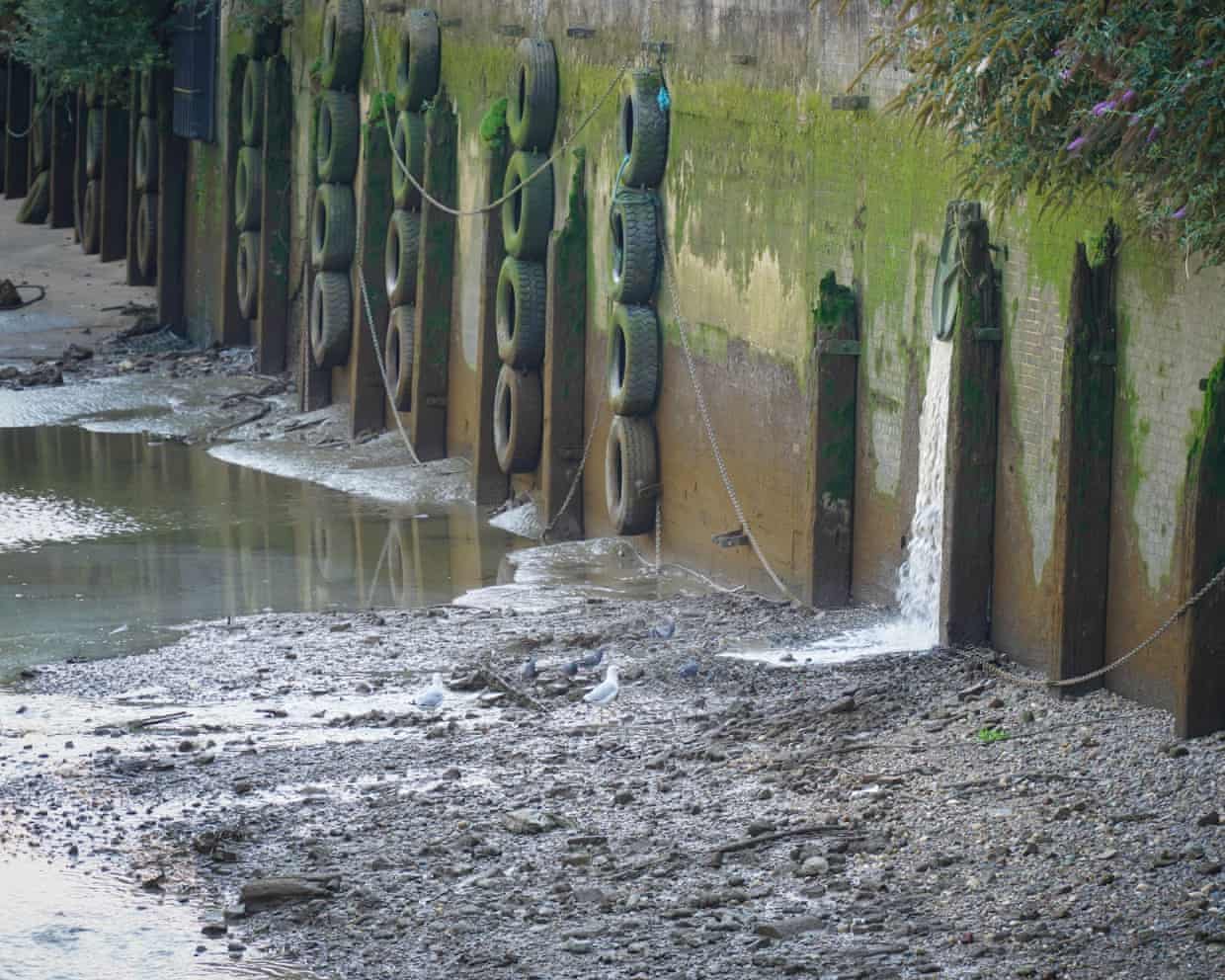World
England’s Water Companies Face Historic Ratings Decline Amid Sewage Crisis

England’s water companies have received their lowest ratings on record, as a surge in sewage pollution has raised serious concerns about environmental management. According to the **Environment Agency**, eight out of nine water companies were rated as poor and in need of improvement, with an overall cumulative score of only **19 stars out of a possible 36**. This stark rating represents a significant decline since the star rating system was introduced in **2011**.
Only **Severn Trent** managed to achieve full marks despite being responsible for **62,085 sewage spills** in **2024**, averaging around seven hours each. In stark contrast, **Thames Water** received just one star for its performance, with its serious sewage pollution incidents more than doubling from **14 to 33** in the same period. The company’s precarious financial situation has prompted warnings that it is on the brink of collapse as it struggles to negotiate a deal to write off its substantial debts.
The **Environment Agency’s** report cites several factors contributing to this decline in performance, including **wet and stormy weather**, underinvestment in infrastructure, and increased monitoring. Despite promises to reduce sewage spills by **30%** from **2020 to 2025**, water companies have instead increased the amount of sewage discharged. The report reveals that while companies achieved a **15% reduction** in incidents during the first three years, the subsequent rise in the final two years resulted in an overall **27% increase** across the period.
Critics have highlighted flaws in the **Environment Agency’s** rating system, noting that it permits companies to earn top marks even when they are found to have illegally discharged sewage. This system allows company executives to justify high salaries despite ongoing environmental failures. For instance, **Severn Trent** used its four-star rating to support a **£3.2 million** pay package for its chief executive, **Liv Garfield**, even after the company was fined **£2 million** for spilling **260 million litres** of sewage into the **River Trent**.
Amid these ongoing issues, **Rachel Reeves**, the Chancellor, has directed regulators to prioritize economic growth over stringent enforcement of regulations. Plans are underway to establish new growth targets and create a league table for water companies, while also overhauling the regulatory framework by merging existing bodies into a “super regulator.” However, campaigners question the effectiveness of these measures, arguing that the privatized water system has enabled excessive bonuses and dividends at the expense of necessary investment in sewage infrastructure.
In light of these developments, **Alan Lovell**, the chair of the **Environment Agency**, emphasized the urgent need for change. He stated, “This year’s results are poor and must serve as a clear and urgent signal for change. What is needed now from every water company is bold leadership, a shift in mindset and a relentless focus on delivery.” Moving forward, the **Environment Agency** plans to replace the star rating system with a new methodology in **2027**, which will assess companies on a scale of **one to five**, categorizing them based on overall performance rather than allowing high ratings on select metrics.
As the situation continues to unfold, the implications for England’s rivers and coastal waters remain serious. The ongoing sewage crisis highlights the pressing need for a comprehensive overhaul of how water companies operate and are held accountable.
-

 Science2 weeks ago
Science2 weeks agoIROS 2025 to Showcase Cutting-Edge Robotics Innovations in China
-

 Politics2 weeks ago
Politics2 weeks agoJudge Considers Dismissal of Chelsea Housing Case Citing AI Flaws
-

 World2 weeks ago
World2 weeks agoBravo Company Veterans Honored with Bronze Medals After 56 Years
-

 Top Stories2 weeks ago
Top Stories2 weeks agoIndonesia Suspends 27,000 Bank Accounts in Online Gambling Crackdown
-

 Lifestyle2 weeks ago
Lifestyle2 weeks agoStone Island’s Logo Worn by Extremists Sparks Brand Dilemma
-

 Health2 weeks ago
Health2 weeks agoStartup Liberate Bio Secures $31 Million for Next-Gen Therapies
-

 Sports2 weeks ago
Sports2 weeks agoMel Kiper Jr. Reveals Top 25 Prospects for 2026 NFL Draft
-

 Health2 weeks ago
Health2 weeks agoTop Hyaluronic Acid Serums for Radiant Skin in 2025
-

 World2 weeks ago
World2 weeks agoHoneywell Predicts Record Demand for Business Jets Over Next Decade
-

 Politics2 weeks ago
Politics2 weeks agoNew Jersey Voters Urged to Register Ahead of November Election
-

 Lifestyle2 weeks ago
Lifestyle2 weeks agoMary Morgan Jackson Crowned Little Miss National Peanut Festival 2025
-

 Sports2 weeks ago
Sports2 weeks agoYamamoto’s Mastery Leads Dodgers to 5-1 Victory in NLCS Game 2









